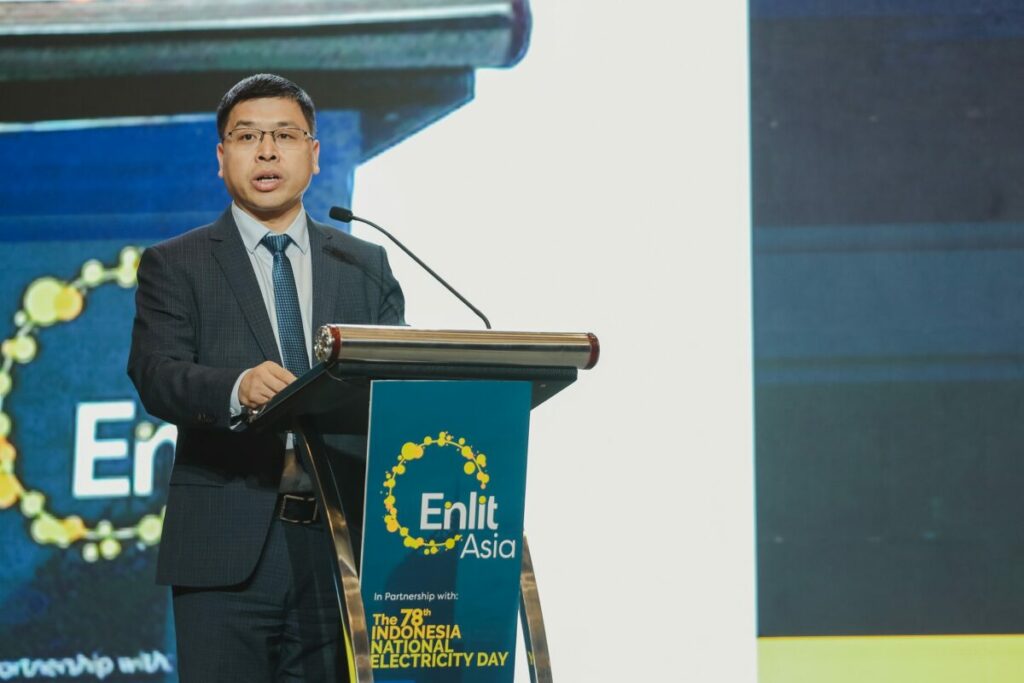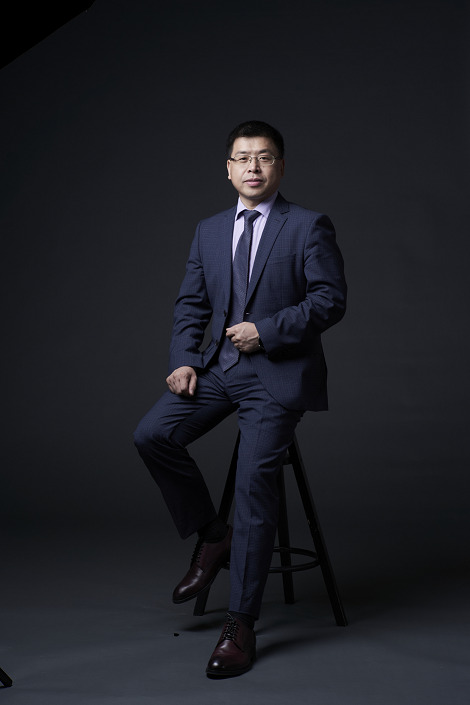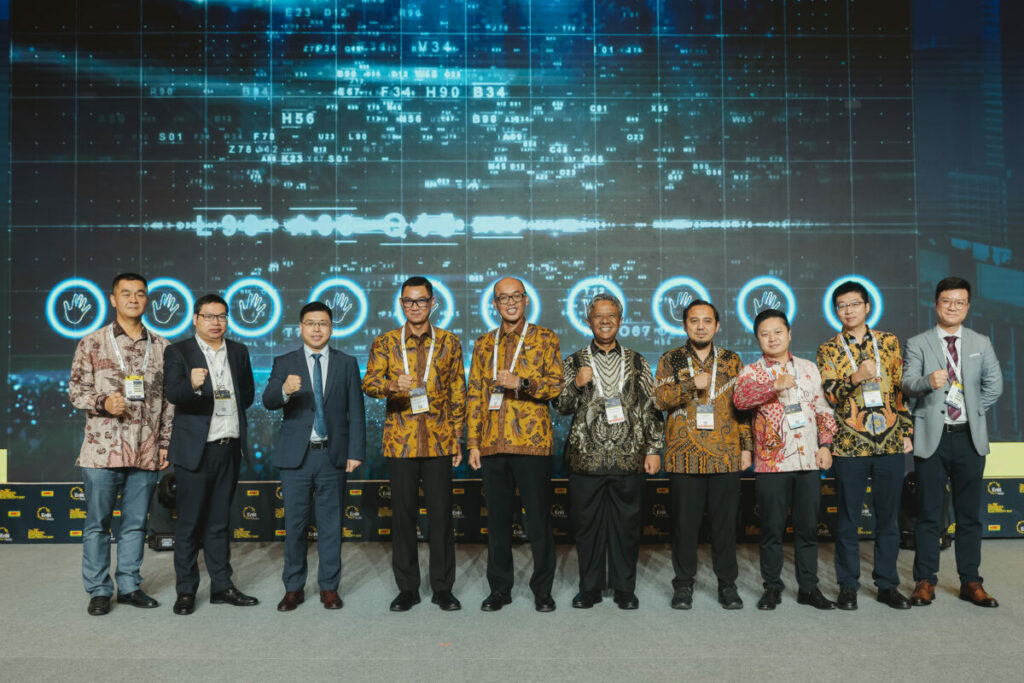
The Asia-Pacific region’s transition away from fossil fuels requires a combination of digital innovation and environmentally-friendly energy technologies, writes Nicolas Ma of Huawei.
To address the pervasive worldwide dilemma of how to balance economic growth with environmental conservation, a dual transformation strategy based on both ‘green and digital’ principles presents a path to sustainable solutions. Globally, over 170 governments have formulated their digital strategies, and 130 countries have pledged to net-zero emissions, signifying a widespread global consensus towards transitioning to green and digital energy.
Enjoy 12 months of exclusive analysis
- Regular insight and analysis of the industry’s biggest developments
- In-depth interviews with the industry’s leading figures
- Annual digital subscription to the PV Tech Power journal
- Discounts on Solar Media’s portfolio of events, in-person and virtual
The transformation involves a shift from fossil-based energy systems to renewable sources in production, transmission, consumption, and storage. The Huawei Global Industry Vision Report anticipates that over 50% of global power will be generated from renewable energy by 2030; and the accumulated global energy storage capacity is expected to reach 358GW, increasing more than 20 times over within 10 years.
As renewable energy gains prominence in the energy system, the electric power industry becomes a critical battlefield in the ongoing transition. Variable renewable energies like solar PV replace fossil energy at the generation end, while the integration of new power loads like electric vehicles poses a significant threat to system balance at the consumption end.
Realising the ambitious transformation demands collaborative efforts, Enlit Asia 2023, the leading regional annual conference took place from November 14 to 16 in Jakarta, Indonesia, co-organised with Masyarakat Ketenagalistrikan Indonesia (MKI, also known as the Indonesian Electrical Power Society),
The event brought the regional power and energy value chain together on one platform, to address the industry’s latest trends, products, and technologies.
During the event, Huawei showcased innovative electric power solutions and exchanged crucial insights on ASEAN energy transition with opinion leaders and experts from over 200 enterprises. As a chartered member of MKI, Huawei is committed to harnessing digital technologies to accelerate the energy transition across the Asia-Pacific (APAC) region.
Driving green and digital transformation through collaboration
Home to 61% of the world’s population, APAC countries are speeding up on the dual transformation journey. National strategies like Digital Indonesia, My Digital in Malaysia, and Digital Hub in Thailand are building strong digital foundations, accompanied by commitments such as Thailand’s aim for carbon neutrality by 2050 and Indonesia’s target of Net-Zero Emissions by 2060.

Although APAC countries are at different phases of energy transition, ‘green and digital’ must be the driving force behind ASEAN’s economic momentum.
This ambitious pathway will require close collaborations across all sectors. Governments and public entities play a crucial role in establishing a conducive environment through policies, while financiers, investors, and businesses of all sizes contribute through green finance and carbon trading markets.
Furthermore, technological innovations in digital and energy sectors will serve as key enablers throughout the process. Numerous communities and platforms arise within the energy industry, bringing together stakeholders to enhance discussions about energy transition. One notable entity in this landscape is MKI, which aims to create a communication and consultation forum that strengthens synergy in enhancing the efficiency of environmentally-friendly national electrical power since 1998.
Through initiatives like The Indonesia National Electricity Day, MKI shapes opinions to develop the electrical power industry. Huawei consistently participates in MKI events and forums, working collaboratively with stakeholders in the region to bolster ASEAN’s energy transition.
Empowering the Asia-Pacific energy transition in three dimensions
Dedicated to accelerating the green and digital energy transition, Huawei commits to contribute in the electric power industry in three significant ways.
i. Innovation in cutting-edge electric power solutions
According to Wood Mackenzie, the Asia-Pacific region is set to embark on a decade of renewable energy transformation (2021-2030) with a projected investment of US$1.3 trillion in wind and solar generation. To tackle challenges from the introduction of new energy, the industry requires robust digital capabilities, including widespread connectivity, a dependable communication network, and formidable computing power. In response, Huawei is committed to bring innovative technologies for the smart power system, viewing digitalisation as the remedy for these pressing issues.
As a global ICT provider, we offer three types of electric power solutions. Firstly, we provide scenario-based industry digitalisation solutions, including intelligent power plant, intelligent power transmission line inspection, and power distribution IoT to enhance operational and maintenance (O&M) efficiency.
Our digital space security solutions ensure reliability through anti-interruption measures, anti-attack mechanisms, and anti-ransomware measures, serving as a robust last line of defense for data security. Lastly, we contribute to green and low-carbon development through innovations in digital power solutions, such as smart microgrid and battery energy storage systems.
Our intelligent electric power solutions have proven to be beneficial to various energy companies across Asia-Pacific.
In Macao SAR, China, we collaborated with Companhia de Electricidade de Macao (CEM), to enhance its communication network reliability and reduce the learning and maintenance costs.
In Indonesia, we assisted Perusahaan Listrik Negara (PLN) in establishing a secure storage environment to bolster its smart meter workflows.
In Thailand, our smart grid solution helped Provincial Electricity Authority (PEA) upgrade their wireless communication infrastructure for lower latency and increased connectivity.
ii. Cultivating digital talent for the electric power industry
To propel the energy transition’s forward progress, it is imperative to have experts well-versed in both electric power industry knowledge and digitalisation skills. First, our experts will collaborate with enterprises, companies, and eco-system partners to facilitate a professional growth with practical electric power scenarios. As the first wave of seed talents identifies essential digital capabilities, we implement a certification system linked to their career development.
With the belief that wisdom resides among the people, we reduce the threshold for digitalisation. Our Seeds for the Future, ASEAN Academy, and ICT Academy have trained over 200,000 digital talents in Asia-Pacific, encouraging widespread participation and creativity.
Meanwhile, we aim to empower partners to precisely meet customer requirements, efficiently resolve issues, and agilely deliver solutions. This year, Huawei unveiled a US$200 million incentive for Asia-Pacific partners, allocating US$55 million for partner capability development.
Two joint innovation OpenLab facilities were inaugurated in the region (OpenLab Asia-Pacific in Singapore and OpenLab Bangkok in Thailand). Both OpenLabs aim to facilitate customer and partner enablement, uniting local partners to conduct proof-of-concept testing and develop scenario-based electric power solutions according to APAC business scenarios and customer requirements.
iii. Accelerating digital transformation of the electric power sector with top industry players
We aim to continuously accelerate the digital transformation of the electric power sector through strategic collaboration with top industry players and set up the good reference in the region.
Since 2013, Huawei and PLN have collaborated hand in hand, striving together to forge a green and digital Asia-Pacific. The launch of the Joint Innovation Center (JIC) programme at Enlit Asia marks a significant milestone of the 10-year partnership, signifying a stronger readiness for APAC energy transition.

Bringing together experts from research and development, sales, marketing, service, consulting, and key partners in the electric power industry, JIC is envisioned as an outstanding eco-platform. Here, both parties can collaboratively develop new products, solutions, and drive the digitalisation of electric power and FTTH (Fiber to the Home) businesses.
Beyond its role in innovation incubation, JIC will serve as a hub for exhibitions and capability development. This dual-purpose approach aims to assist PLN in enhancing its digital capabilities while showcasing the collective achievements of both parties.
Uniting for green and digital prosperity in Asia-Pacific
Collaborating with more than 20 leading electric power companies across 12 countries in the region, we are deeply rooted in Asia-Pacific. United at the crossroads of a transformative era, let’s jointly strengthen the energy landscape, catalysing digital empowerment across the power industry for enhanced efficiency, resilience, and sustainability. This collective mission shapes a fully connected and intelligent APAC—a beacon of progress for generations.
About the Author
Nicolas Ma is President of Huawei Asia-Pacific Enterprise Business Group. Nicholas has held various positions at Huawei in different regions throughout his tenure with the company. He has 15 years of experience in the telecommunications industry. Prior to his current role, he was the Deputy Chief Executive Officer of Huawei Philippines from 2014 to 2018 (Nov), and the Chief Executive Officer of Huawei International since Dec 2018.

